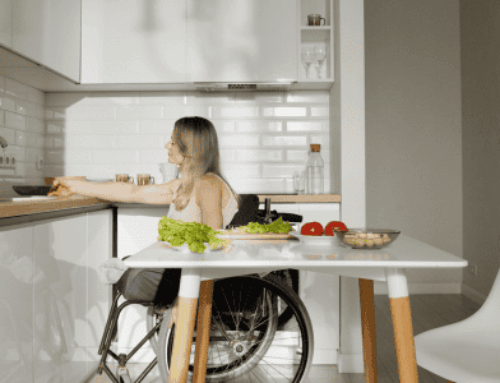
Parents have an incredible influence over the habits, thoughts, beliefs and actions of their children. In Australia over a quarter of children are overweight or obese and this has been steadily rising.
Here are 14 tips to raise healthy and happy kids:
1. Don’t use food as a bribe
“If you eat all your dinner then you can have dessert”. I know it’s hard sometimes to get them to do what you want them too, trust me I have two kids of my own. However, bribing with food teaches kids unhealthy snacking habits and increases their risk of obesity.
2. Use non-food rewards
When our kids have been well-behaved we like to do something nice for them: a yummy treat, take them out for ice cream, offer them dessert, etc. Try buying them a new book or toy instead. Or maybe schedule an outside play activity to encourage healthy behaviours rather than rewarding with food.
3. Use non-food comfort techniques
It can be very east for us to hand over a biscuit or another yummy food item when our child has fallen over and scraped their knee or bumped their head. We want them to feel better and generally yummy food will stop the tears in an instant. What we are doing is teaching our kids emotional eating. Try other comfort techniques like sitting on the couch and having a nice cuddle, reading their favourite story or helping you out in the kitchen.
4. Have strict family food rules
A recent Italian study found that strict family food rules resulted in higher fruit and vegetable consumption in children and teenagers. Kids shouldn’t be able to have free range of the fridge and pantry contents. As parents, we should be the one who determines what and when snack and meal times are. Although hard at first, your kids will thank you one day.
5. Encourage creative play
Sometimes children can ask for food if they’re bored or idle. Google “cheap kids activities” and you’ll find heaps of great ideas that you can give your children to do. As parents you are the gatekeeper of the kitchen and can teach your children to occupy themselves with valuable activities instead of eating out of boredom.
6. Have regular family meal times
Research shows that children who regularly participate in family meal times grow up with healthier habits around food. When we prepare and enjoy family meals together, we’re more likely to serve something healthy, with vegetables and whole foods. The other benefit of family meals if the power of parental modelling. Your children will watch you eat and if you regularly enjoy vegetables at your meals then they will too.
7. Be organised
So much of our problems with poor eating habits is due to the fact that we are unprepared. Plan out your family’s meals and snacks. Get your kids involved in the planning process. Maybe they can each pick a family meal or weekly snack. Put the meal plan on the fridge for everyone to see. When you get the daily question “what’s for dinner” you can say “check out the meal plan”. The extra layer of preparation can often make the difference between having a nutritious meal or takeaway on a busy weeknight.
8. You are not a restaurant
You are a parent, not a gourmet chef or an a la carte restaurant. Meals like breakfast, lunch and snacks don’t have to be different everyday. In fact, consistency and routine are very strong predictors of healthy eating habits, particularly in children. As long as the meals have plenty of good nutrition, there is no reason why they can’t have the same thing for breakfast or lunch everyday – with maybe something different on the weekend. You then change up the variety from week to week. There is no need to put extra pressure on yourself.
9. Learn to say “no” at the supermarket
If you have to take your kids shopping, don’t succumb to the food advertising that makes kids go “mum, can we buy the chocolate muffin cakes with Buzz Lightyear on them?”. Use this as a good opportunity to teach your kids moderation. One of the best ways that I recommend to people who want to lose weight is to not buy unhealthy food in the first place. If you don’t buy it you won’t eat it. Simple.
10. Make vegetables exciting
Recipes that “hide” vegetables so your kids will eat them are totally fine, but why not teach your children to actually enjoy eating them. Don’t boil the heck out of them or serve them mushy or boring. Not even I eat vegetables like that, no matter how good they are for me. Toss them in fresh herbs, balsamic vinegar, garlic, ginger or lemon juice. BBQ them, roast them and steam them. Make them fresh and exciting. Check out this article on how to add flavour to your meals, particularly vegetables!
11. Fruit is the best snack option
If your children complain they are hungry close to dinner time, offer them some fruit. They’re high in fibre, vitamins and minerals, low in energy and it won’t ruin their appetite for dinner. Fruits like apples, bananas, grapes, strawberries, kiwifruit and many others can be eaten on the spot, require little preparation and don’t dirty dishes! Bonus!
12. Water, water, water
Children don’t need to drink fruit juice, soft drink or flavoured milk drinks. Kids don’t need the extra energy that these beverages contain. Water is fine, just plain water. No cordial or other flavours. Teach your children to appreciate the simplistic pleasure of drinking a fresh glass of H2O. Buy them special drink bottles and get them to drink it through the day, serve water at dinner and snack times and make all other beverages very occasional ‘treats’, no more than once a week.
13. Limit screen time
The Australian Physical Activity Guidelines for Children recommend no more than 60-mins of screen time (computers, TV, and phones are all included) per day. They are sitting down most of the day at school so encourage them to go outside and play, ride their bikes, run around, make cubby houses, play in a sandpit and move their bodies.
14. Prioritise physical activity
My kids and I often go to the park after school, or go bush walking, ride our bikes around, and kick a ball at the oval. It doesn’t have to be fancy, just get outside with your kids and enjoy the time you have together.
If you’re concerned about your child’s eating habits or weight, our experienced paediatric dietitian, Michelle, can offer you simple, practical advice to help you create a healthy home and raise healthy kids. As a mum herself, Michelle understands the struggles many parents face and is here to help!
If you’d like further help with your nutrition please click below:



